Updating the Ubuntu kernel
- Main
- Knowledge base
- Updating the Ubuntu kernel
The new version of the kernel contains fixes, makes improvements in system performance and stability, as well as various innovations that make working with Linux even easier and more efficient. Every user is interested in such benefits, but Ubuntu is considered to be a rather conservative distribution, to which new kernel versions reach quite slowly.
However, this problem is solved, it is enough to follow simple steps from the instructions we will give. Next, we will tell you how to update the kernel of ubuntu 16.04 or later versions. Although there are no new versions of the kernel in the repository, but there is a program that will do all the work for you.
What is a kernel?
In Linux, the kernel is the central part of the operating system. It is the program that manages the computer's hardware resources (processor, memory, I/O devices, and so on) and enables communication between hardware and software.
The main functions of the Linux kernel include:
- Process management: responsible for managing processes (applications), their creation, execution scheduling, resource allocation and control.
- Memory management: manages memory access, allocates memory to processes, manages virtual memory, and provides security and isolation for processes.
- Device management: provides interaction with hardware devices such as hard disks, network cards, printers, and other devices.
- File System: supports file systems, providing file access and management.
- Networking: provides networking capabilities to share data between computers over a network.
The Linux kernel is open source, which means that its source code is available for review, modification, and distribution by the development community. This allows the kernel to be customized for different needs and ensures that it is constantly evolving and improving.
How the Ubuntu kernel is updated
Kernels in Linux as well as any other system are extremely important and necessary, because they are responsible not only for managing memory, processes and the main components of the computer, but also contain all the drivers of system devices. So in the case of new technologies drivers must be updated, so if your computer has any problems with hardware support in Linux, then updating the Ubuntu kernel can improve the situation.
To make the update much faster and easier, you just need to use the UKUU or Ubuntu Kernel Update Utility. It actually downloads the desired kernel versions from the internet and customizes your system so that you can use them. All the user has to do is select the kernel version.
It is not available in official distributions, but it can be downloaded from the repository:
$ sudo apt-add-repository -y ppa:teejee2008/ppa
$ sudo apt update
$ sudo grub-mkconfig -o /boot/grub/grub.cfg sudo apt install ukuu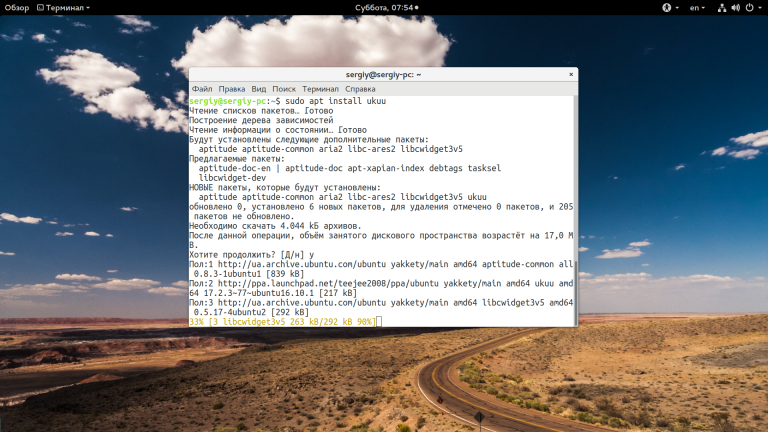
It is also possible to install the utility through the Ubuntu application center. After that you can launch the program from the main menu:

Afterwards, immediately after launching it will synchronize its state with the network to determine what new kernel versions are available:
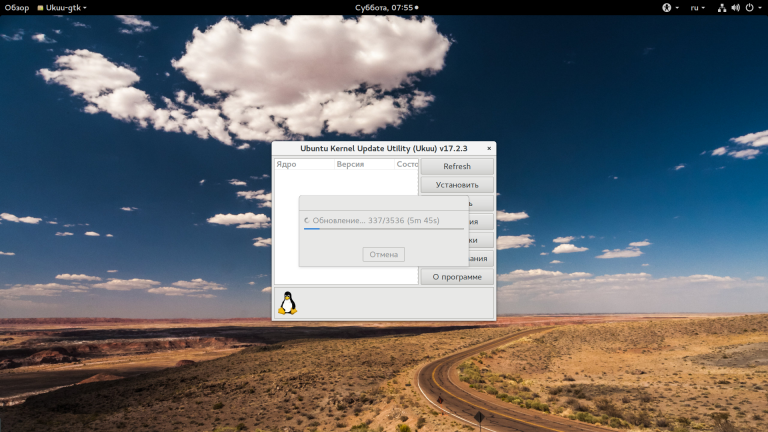
In the list you will be able to discover the kernels that you can install. Probable releases are marked in red and stable releases are marked in yellow.
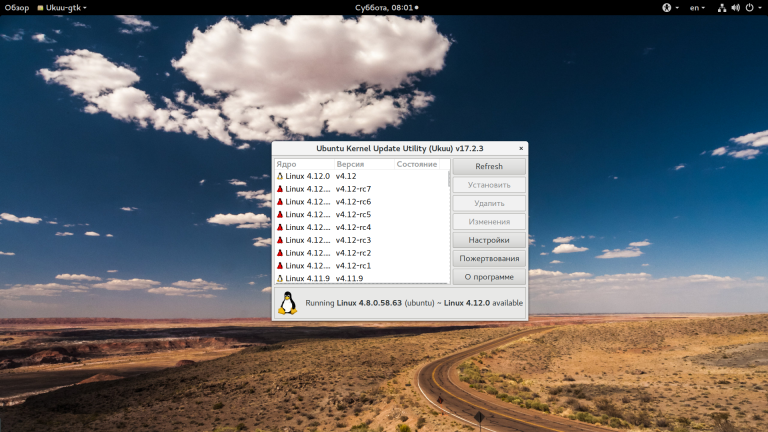
To install a kernel, just click the "Install" button:
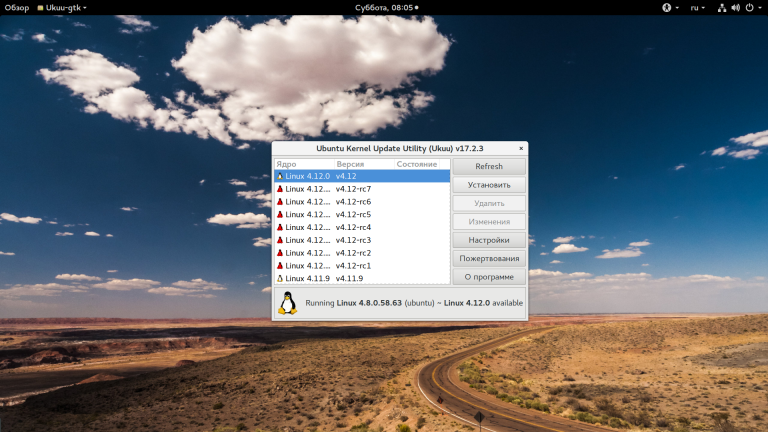
Next, the user will have to enter the password and wait for the installation to complete. The progress of initialization can be monitored in the terminal window:
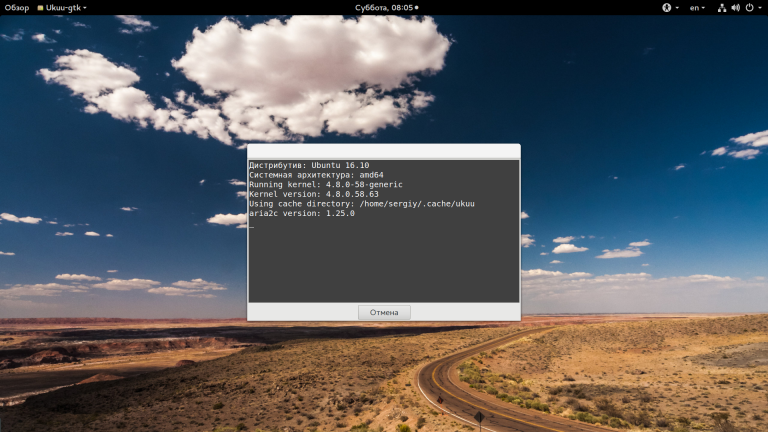
When the update is complete, it is enough to reboot the computer to use the new version of the kernel.
Problem Solution
New kernels, unfortunately, do not always improve the computer's performance. They can make changes after which the system is unstable or does not start at all. It is important for the user to understand what to do in such situations.
It is so customary that Ubuntu may not let you choose the kernel from which to boot. Therefore, first edit /etc/default/grub. Comment out this line:
$ sudo vi /etc/default/grub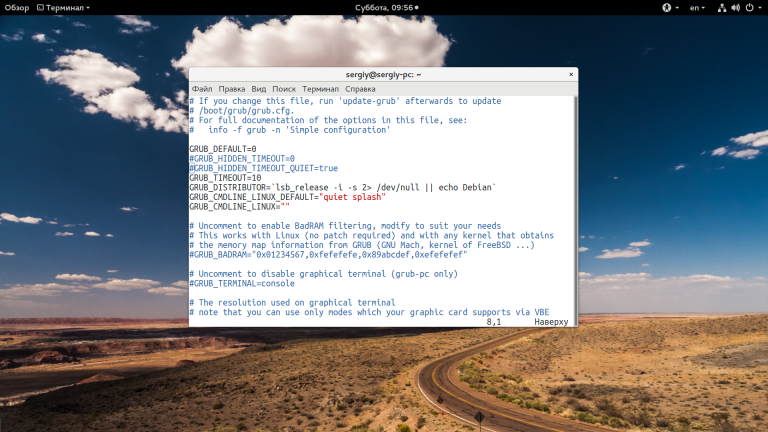
# GRUB_HIDDEN_TIMEOUT_QUIET
# GRUB_HIDDEN_TIMEOUTNext, you need to create a configuration file with the following settings:
$ sudo grub-mkconfig -o /boot/grub/grub.cfgIn the future, you will be able to load the previous kernel, if after the upgrade something went wrong and the system stopped working stably and properly. If Linux won't boot, there is a solution here too, just press the down key very quickly and repeatedly at the time when the Grub menu should appear.
You can always remove a new kernel that doesn't work using UKUU, there is a button for this action called "Uninstall":
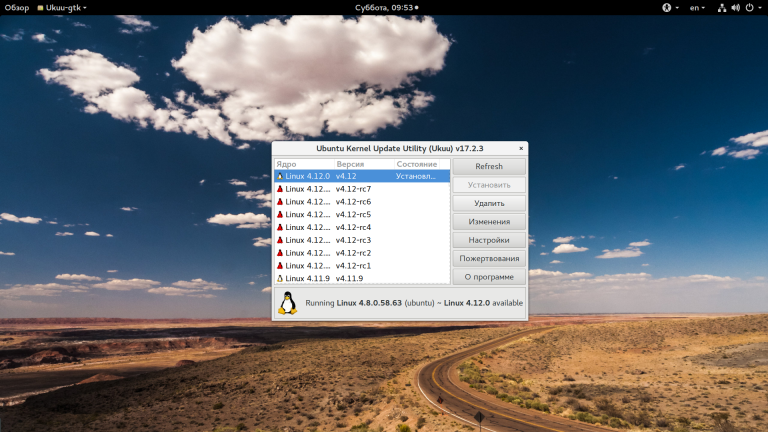
Clean the system
If the kernel works fine after the upgrade, you can remove the old ones. We will talk about this in another article, dedicated specifically to the process of cleaning the system from old and unnecessary kernels.
That's it, updating the kernel in Ubuntu is quite a real and feasible task.

































